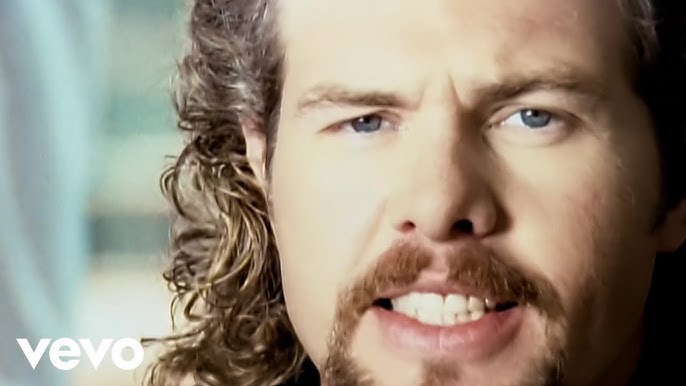
About the song
Toby Keith’s “Me Too”, a song that landed like a warm beer on a hot Texas afternoon back in 1996. Keith, a man synonymous with American bravado and red dirt anthems, surprised many with this introspective ballad. “Me Too” wasn’t about chasing tailgates or small-town glory; it was a peek behind the curtain of a macho man wrestling with vulnerability.
---> Scroll down for the VIDEO
This wasn’t a new theme in country music, mind you. Think of the tortured cowboys of yesteryear, yearning for love with a stoic silence. But Keith brought a contemporary edge to it. He wasn’t some heartbroken drifter; he was a regular guy, a little rough around the edges, struggling to express his emotions.
The beauty of the song lies in its relatable awkwardness. Keith sings about wanting to say “I love you,” that cornerstone of romantic expression. But the words get stuck in his throat, a jumbled mess on the tip of his tongue. He resorts to actions – breakfast in bed, calling in sick to steal a day together – hoping they speak louder than his fumbling vocabulary.
---> Scroll down for the VIDEO
“Me Too” taps into a universal truth: men and women often speak different emotional languages. This internal battle between action and expression is what makes the song so endearing. It’s a testament to the songwriter’s understanding of human connection, particularly within the traditionally stoic world of masculinity.
There’s a tenderness in Keith’s voice, a vulnerability that surprised many listeners. He admits his shortcomings, his inability to utter those three little words with ease. He pleads with his partner to understand the unspoken language of his actions, the way he watches her sleep or whispers sweet nothings in the dark.
“Me Too” became an anthem for a generation of men who felt a similar emotional awkwardness. It wasn’t a song about grand gestures or sweeping declarations; it was a quiet confession of affection, a celebration of the little things that add up to love. In a genre often focused on bravado, Keith dared to be vulnerable, and in doing so, created a country classic that continues to resonate with listeners today.